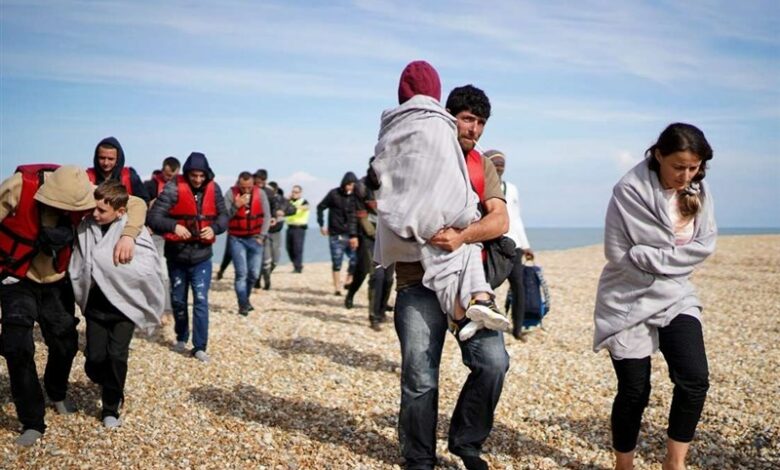Holding a conference to curb immigrants in Denmark

| The international migration conference focused on cooperation with third countries to curb the influx of migrants was held in the capital of Denmark with the presence of many officials from European countries. |
According to the report of the international group Tasnim news agency, newspaper ” Kronen Zeitung wrote in a report: The European Union Parliament recently decided to reform the EU asylum system with some strict measures, but these measures were not enough for countries like Austria and Denmark. The aim is to base asylum procedures outside of Europe on the British model of Rwanda. This is currently not legally possible, but Vienna and Copenhagen are pushing for these legal changes.
The international migration conference was held on Monday in the Danish capital, which was The first level focused on cooperation with third countries (to curb the influx of migrants). Representatives of third countries such as Albania, Tunisia and Mauritania, as well as European Union Commissioner Ylva Johansson and international experts also participated in this outstanding event. Beck”, the Minister of Immigration of Denmark and Gerhard Karner, the Minister of the Interior of Austria, although they were from different political families, but they announced similar positions in this regard.
Karner in his speech In this conference, he said: Less than 30% of asylum seekers really need protection. It creates problems for our social systems, our health systems and endangers security in the country. He emphasized: We can achieve a better system only through cooperation. Individual actions by countries will not help, they will only change the escape routes and help smugglers more. Illegal immigration is a global problem that must be solved together.
“Matt Frederiksen”, the Prime Minister of Denmark, also adopted clear positions in this regard. He described the development of immigration as worrying. At the same time, he said: Of course, no one leaves their home without a reason, but we cannot continue like this. We must master our borders. These conditions cannot be left in the hands of smugglers. They should not decide for us.
Despite strong resistance to further tightening of asylum laws in Europe, Karner and his colleague Beck see it as a move in their own interests. . The two who participated in the migration conference were of the opinion that “new approaches are needed and we need to change the rules at the European level in this direction”. “We all agree that the current method is not working,” Carner said. From Europe, representatives from Italy, the Netherlands, Belgium, France, Sweden and the Czech Republic, etc., were present. He implemented asylum rules to intensify the strictures against asylum seekers.
According to this plan, including the incoming people, they must be registered with fingerprints and photographs to check if they pose a threat. Are they for public safety or not? Rejected asylum seekers should be deported to safe third countries more easily in the future. Critics worry that this approach will undermine the right to asylum and human rights in Europe.
The plan includes, among other things, faster procedures at the EU’s external borders to ensure that migrants are deported. It is considered without perspective. According to experts, however, the reforms are unlikely to have any effect until the European elections in early June. Migration, crisis regulations allow people to be held for longer periods in asylum centers at foreign borders under prison-like conditions.
European Parliament recently after 8 A year of deadlock has finally passed sweeping reforms of immigration and asylum policy for the European Union.
The new deal envisages collective and predictable rules for managing the reception and movement of asylum seekers. has it. Since the migration crisis of 2015-2016, this issue has been a frequent source of tension in the European Union.
Dozens of charities that help migrants including Amnesty International, Oxfam and Criticizing the changes, Caritas called them “dangerous” and said in an open letter during the negotiations that the agreement would create an “oppressive structure” that was unworkable.
end of message/
| © | Webangah News Hub has translated this news from the source of Tasnim News Agency |


